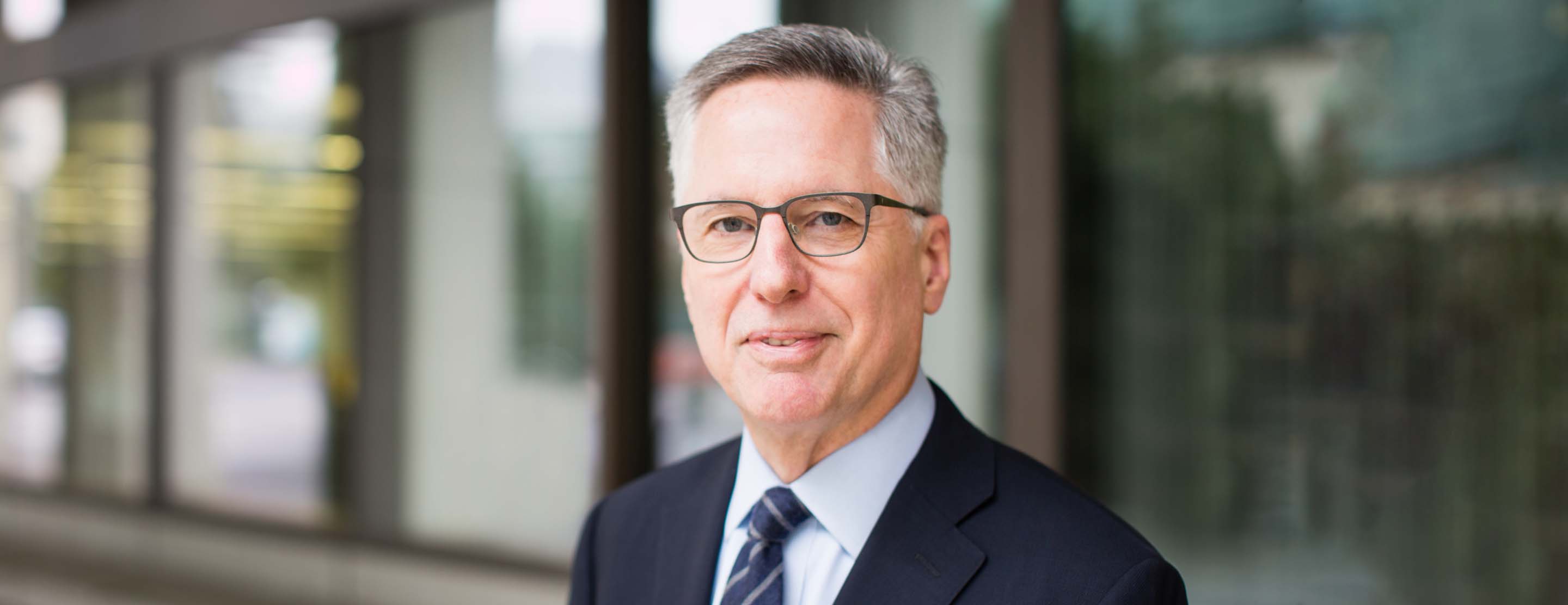Dr. Peter Carroll is co-director of Urologic Cancer at the UCSF Helen Diller Family Comprehensive Cancer Center as well as chair of UCSF's Urology department. Curious, creative and driven, Carroll says once he landed on a career in medicine, he decided early on that UCSF was where he belonged. "This place allows us to achieve the dreams we had in mind when we went to medical school," he says.

Doctor Q&A: Peter Carroll
You do a lot of surgeries — Do you primarily describe yourself as a surgeon?
I would say I'm connected to patients in many ways, one of which is being a surgeon. I really try to do the right thing at the right time for the right patient. Most of the time, that's being a surgeon.
Did you always see yourself becoming a surgeon or doctor?
No, I never saw myself as a surgeon initially — I was not one of those kids with a slide rule in my pocket. I was actually an English major, but over time I gravitated towards medicine. It resonated with me.
Why did you choose UCSF?
I saw early on that it was a place of boundless opportunity. I really wanted to be here and to help build a world-class urology department.
Describe the culture at UCSF.
It's about always being focused on the end game — never stopping and never slowing down, seeing challenges rather than obstacles, getting things done.
Without question, this is very creative and innovative environment. We come to work each day thinking how we're going to do things differently, do them better. People are focused on making a lasting impact in the world. It's a hive of brilliance.
You helped pioneer a new protocol for prostate cancer, called active surveillance. How did that come about?
The mindset was, when you diagnose prostate cancer, you need to treat it aggressively with surgery or radiation and you need to do it right away. But then we found out that not all men need to be treated right away. If their cancers are small and slow-growing, we can watch them very carefully and treat them only if their tumors become larger or more aggressive. We've found that their outcomes are the same as if we treated them right away.
Why is active surveillance better for some patients?
For many men, their cancers pose no risk to them left untreated. To expose them to treatment with no benefit is not good. We can give treatment at the right time if and when it's needed, and avoid all the side effects and risks up until that time.
Your patient John Shoemaker said that when you first suggested active surveillance to him, he was dubious. He asked, 'I'm young and healthy, why wouldn't I want to get this taken care of?' How did you respond?
I told John that those who have the most to lose, lose the most. I told him we could take care of him, follow him and then treat him in the future if he needed it, without compromising his outcome.
At first he was quite surprised. But I think that being one of the world's busiest prostate cancer surgeons gives me great credibility when I tell a patient he doesn't need surgery.
Was there any pushback to changing how some prostate cancers are handled?
Not at UCSF. People here understand research and data, they're very supportive of new ideas. There was initially a lot of pushback from others outside UCSF. I think nowadays, it's more accepted but still under-utilized.
Why do you think that is?
I think both patients and clinicians can be afraid of new ways of doing things. Not treating cancer is a relatively new idea. Patients hear the word "cancer" and they think deadly disease.
What's a belief that you live by?
Well, you only go around once in life. You want to end with no energy — there should be nothing left. We have such a wonderful opportunity to do positive things, we should not let that opportunity go unfulfilled.








